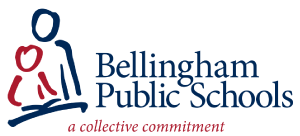Bellingham Public Schools recognizes that an effective public education system develops students who are globally aware, contribute to their community, and capable of achieving fulfilling and productive lives and careers. Students need to be proficient and safe users of information, media, and technology to succeed in a digital world.
Therefore, the district will use electronic resources as a powerful and compelling means for students to learn core subjects and applied skills in relevant and rigorous ways. It is the district’s goal to provide students with rich and ample opportunities to use technology for important purposes in schools just as individuals in workplaces and other real-life settings use these tools. The district’s technology will enable educators and students to communicate, learn, share, collaborate and create; to think and solve problems; to manage their work; and ensure students are ready for the widest range of educational and vocational options to support a diversity of life choices.
To help ensure student safety and citizenship in online activities, all students will be educated about appropriate online behavior, including but not limited to safely interacting with other individuals on social networking websites and in chat rooms, and cyberbullying awareness and response.
The superintendent or designee will create strong electronic educational systems that support innovative teaching and learning, to provide appropriate staff development opportunities and to develop procedures to support this policy.
Use of the Internet
The question of Internet safety includes issues regarding the use of the Internet, Internet-ready, and other electronic devices in a manner that:
- Promotes safe online activity for children
- Protects children from cybercrimes (including crimes by online predators) and cyberbullying
- Helps parents shield their children from materials that are inappropriate for minors.
To promote the safe and appropriate online behavior of students and staff as they access material from the Internet, the district will use the following four-part approach. However, given the ever-changing nature of the Internet, the district cannot guarantee that a student will never be able to access objectionable material.
- Network Use Agreement: Any student or staff member using the Internet from a computer in the district facility must have a valid Network Use Agreement on file;
- Filtering: All district-owned computers in all district facilities capable of accessing the Internet must use content filtering technologies to prevent access to obscene, racist, hateful, or violent material;
- Supervision: When students use the Internet from school facilities, district staff will make a reasonable effort to supervise student access and use of the Internet. If material is accessed that violates standards in the materials selection procedures of the Network Use Agreement, then district staff may instruct the person to cease using that material and/or implement sanctions contained in the Network Use Agreement; and
- Instruction: All students will be educated about appropriate online behavior, including interacting with other individuals on social networking websites and in chat rooms, and cyberbullying awareness and response.
| Legal References: | Content |
|---|---|
18 USC §§ 2510-2522, Electronic Communication Privacy Act , Protecting Children in the 21st Century Act 1974 Privacy Act 1986 Electronic Communications Privacy Act (ECPA) 1996 Child Pornography Prevention Act (CPPA) 1996 Health Insurance Portability and Accountability (HIPAA) 2000 Child Internet Protection Act (CIPA) 2007 Protecting Children in the 21st Century Act |
| Management Resources: | Content |
|---|---|
Policy News, October 2012 Updates and Corrections Policy News, February 2012 Federal Guidance Requires Changes to Electronic Resources Policy Policy News, June 2008 Electronic Resources Policy News, June 2001 Congress Requires Internet Blocking at School Policy News, August 1998 Permission required to review e-mail |
